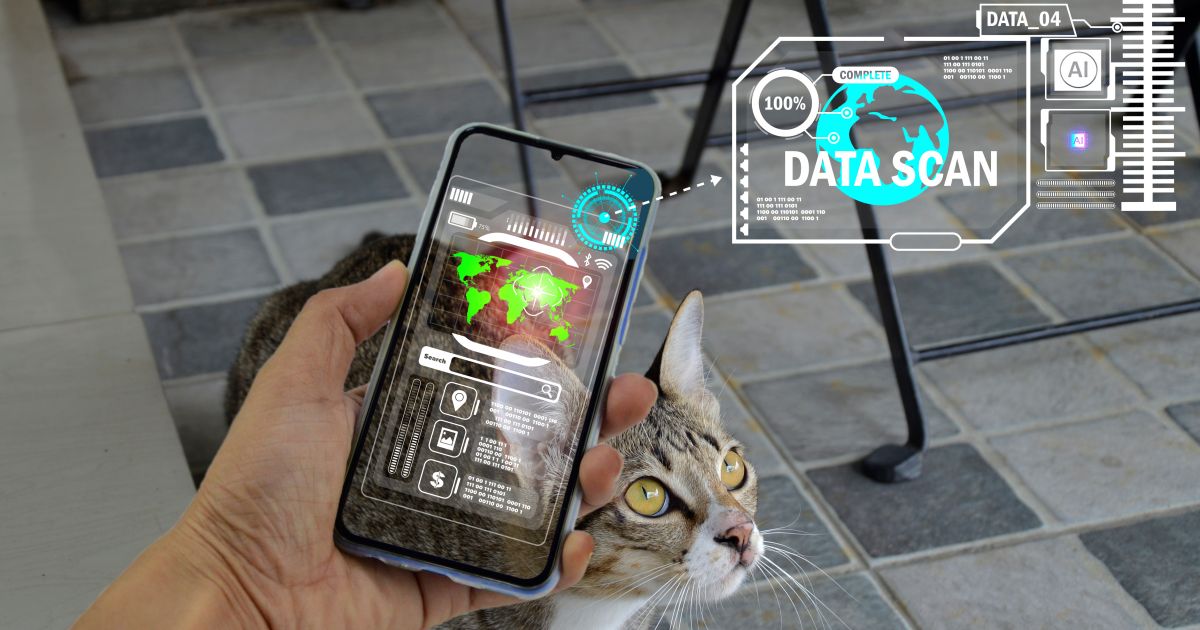
🤖 Friend or Foe: How AI is Reshaping Veterinary Care
Artificial intelligence (AI) has emerged as a transformative technology across nearly all segments of our community, and the veterinary industry is no exception. With its ability to process vast amounts of data and perform complex tasks, AI has the potential to revolutionize veterinary care, diagnostics, research, and overall efficiency in animal healthcare. Explore the impact of AI on the veterinary industry, the significant benefits, the considerable ethical challenges, and the future prospects…
Find Veterinary Jobs…the Fresh Way
AI-Enhanced Diagnostics
One of the significant areas where AI is making a considerable impact is diagnostics. By analyzing vast datasets, AI algorithms can assist veterinarians in accurately diagnosing various conditions and diseases. Machine learning algorithms can identify patterns in medical records, lab results, and imaging scans to aid in diagnosing illnesses such as cancer, heart disease, and neurological disorders.
AI-powered diagnostic tools can process X-rays, ultrasounds, and MRI images, providing veterinarians with more accurate and timely results. These tools can also help in identifying subtle abnormalities that might be missed by human observers, enhancing the accuracy of diagnoses. Additionally, AI algorithms can learn from large datasets of historical cases, enabling them to make more informed predictions about treatment outcomes.
Improved Treatment Planning
AI can contribute to the development of personalized treatment plans for animals. By analyzing an individual animal’s medical history, genetic data, and treatment responses, AI algorithms can help veterinarians make informed decisions about the most effective treatments. This can lead to improved patient outcomes and reduce the trial-and-error approach often encountered in veterinary medicine.
Furthermore, AI-powered systems can provide real-time recommendations for dosage adjustments, medication interactions, and potential side effects. This helps veterinarians prescribe medications more safely and efficiently, reducing the risks associated with treatment errors.
Remote Monitoring and Telemedicine
Telemedicine has gained popularity in recent years, and AI is playing a significant role in expanding its possibilities in the veterinary field. Remote monitoring devices equipped with AI algorithms can collect and analyze data about an animal’s vital signs, activity levels, and behavior. This information can be transmitted to veterinarians, enabling them to monitor their patient’s health and intervene when necessary remotely.
AI can also assist in triaging cases in telemedicine scenarios, prioritizing emergencies, and helping veterinarians make informed decisions about whether an in-person visit is required. This saves veterinarians and pet owners time while ensuring that animals receive appropriate care.
Streamlined Administrative Tasks
In addition to clinical applications, AI can automate and streamline various administrative tasks in veterinary clinics. AI-powered chatbots can handle routine inquiries, schedule appointments, and provide basic information to pet owners, freeing up veterinary staff to focus on more complex tasks. This improves efficiency and reduces the workload on receptionists and customer service personnel.
Furthermore, AI can be employed for inventory management, optimizing supply chain logistics, and automating billing processes. By integrating AI into veterinary practice management systems, clinics can improve overall operational efficiency, resulting in cost savings and enhanced customer experience.
AI in Veterinary Research
AI is revolutionizing veterinary research by enabling data-driven approaches and accelerating scientific discoveries. Researchers can utilize AI algorithms to analyze vast amounts of genomic data, uncover patterns, and identify genetic factors associated with specific diseases or traits. This can lead to the development of targeted therapies and improved breeding practices.
Moreover, AI can assist in drug discovery by predicting the efficacy and potential side effects of new compounds, thus expediting the process of bringing new medications to market. The ability to process and analyze data at an unprecedented scale allows researchers to gain insights and make previously unattainable breakthroughs.
Challenges and Ethical Considerations
While the potential benefits of AI in the veterinary industry are vast, it is crucial to acknowledge and address the challenges and ethical considerations associated with its implementation. Privacy and data security must be prioritized to protect sensitive patient information. AI algorithms must be trained on diverse datasets to ensure unbiased and equitable outcomes for animals of different breeds and backgrounds.
Additionally, there may be concerns about the reliance on AI, with some fearing that it could lead to the devaluation of human expertise and the loss of jobs in the veterinary field. However, it is important to note that AI should be viewed as a tool to augment veterinary professionals’ capabilities rather than a replacement for human judgment and compassion.
Future Prospects
The impact of AI on the veterinary industry is still in its early stages, and the potential for growth and innovation is immense. As AI algorithms continue to evolve, their accuracy and efficiency will improve, leading to even more advanced diagnostic capabilities, individualized patient treatments, and remote monitoring options.
Collaboration between veterinary professionals, AI experts, and technology developers is essential for ensuring that AI is deployed responsibly and ethically in the veterinary field. By embracing AI technologies and leveraging their potential, the veterinary industry can enhance animal care, improve patient outcomes, and empower veterinary professionals with valuable tools and insights.
In Conclusion…
Artificial intelligence is set to revolutionize the veterinary industry by enhancing diagnostics, improving treatment planning, enabling remote monitoring, streamlining administrative tasks, and accelerating research efforts. While challenges and ethical considerations exist, the future prospects of AI in veterinary medicine are promising. By harnessing the power of AI, can veterinarians provide even better care for patients, ultimately improving their health and well-being? Time will tell and on a very rapid scale…
About Veterinary Jobs Marketplace…
We connect veterinary talent with the best veterinary jobs. Explore our Job Campaigns for GP Veterinarians, Emergency Vets, Veterinary Nurses, Technicians, and more, each enriched with video insights. Find new team members using our unique Reach, Frequency, and Story strategy, now including One-to-One Outreach.
For Job Seekers: Discover your ideal veterinary jobs in cities across the USA and Canada. Register for custom Job Alerts, bringing the latest opportunities directly to your Inbox.
For Employers: Register to reach skilled veterinary professionals for your practice. From GP Veterinarians to Emergency Vets, our Job Campaigns help you find the perfect team members.
Worldwide Audience: Expand your reach internationally to the UK, Europe, Australia, New Zealand, and Asia. Our global reach will connect you to our global veterinary community.

